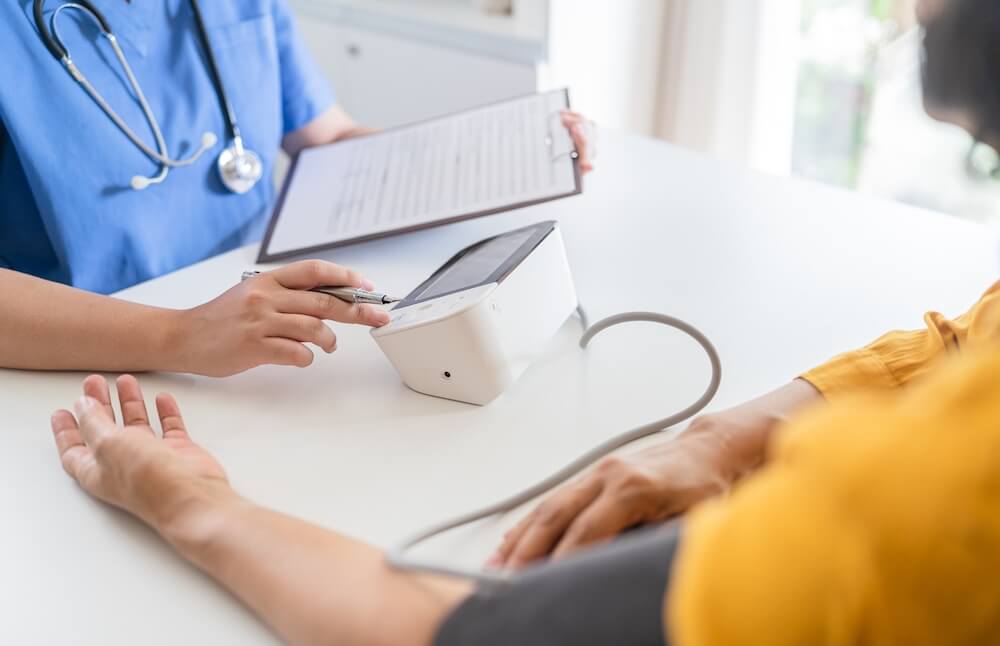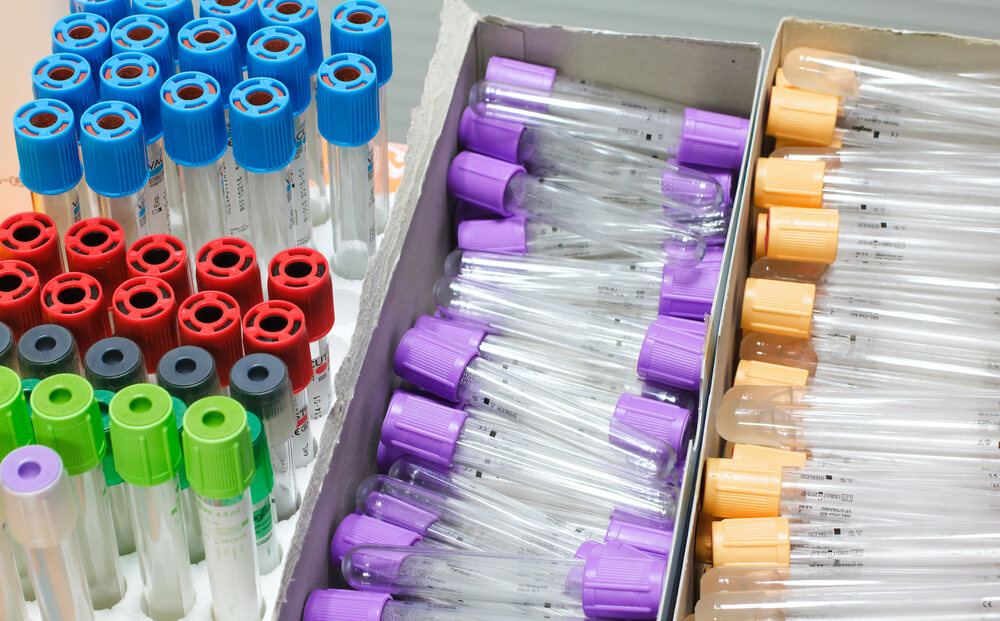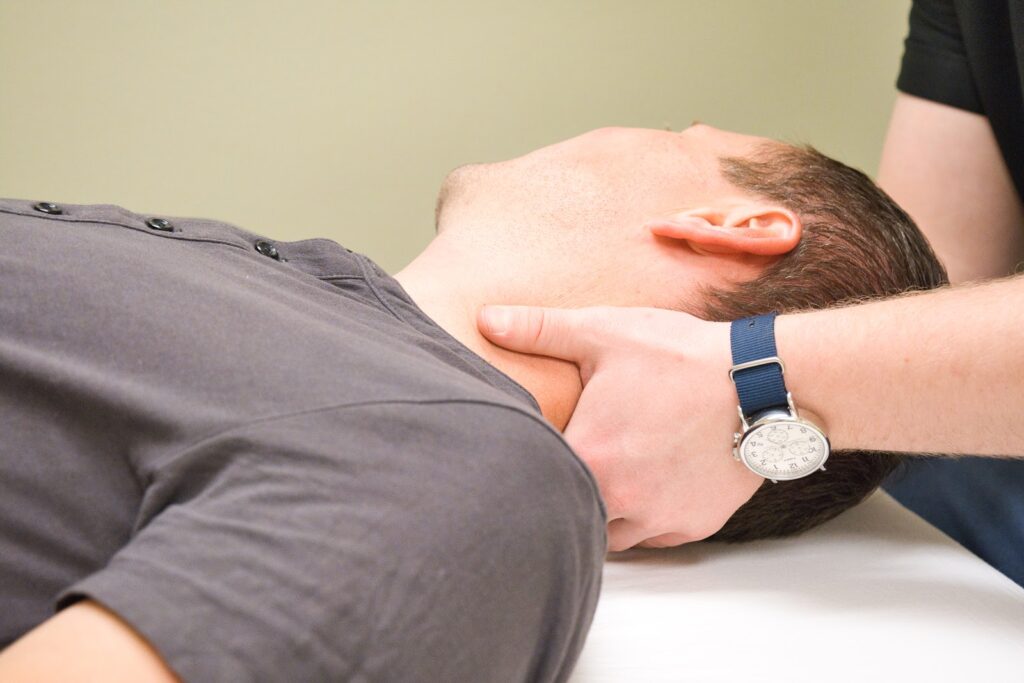When you or your loved one notice signs of cognitive decline, such as memory lapses, losing items, or struggling to follow conversations, it can be hard to know if they are from natural aging, mild cognitive impairment (MCI), or dementia. If these symptoms are noticeable but do not interfere with your independence and daily activities, they could stem from MCI.
In practical terms, older adults with MCI have more memory or thinking problems than other people their age, but they don’t have deficits as severe as those observed in Alzheimer’s disease or another type of dementia.
The key difference between MCI and dementia is that patients with MCI can take care of themselves and carry out their normal daily activities, while patients with dementia will need care at some point. Making this distinction can be tricky and requires considerable clinical judgment. It’s critical that patients undergo many cognitive, physical, and emotional evaluations before receiving a diagnosis.
Despite the difficulties associated with being evaluated for MCI, getting an accurate diagnosis is key. An early diagnosis and access to the right treatment — such as what we offer at Neural Effects — could mean the difference between eventually developing dementia or not. The sooner you’re diagnosed, the greater the chances of any intervention being effective.
An estimated 10–20% of all MCI patients progress to dementia every year, but not every patient with MCI will develop dementia. As we’ll see in this article, with the right treatment and lifestyle choices at home, MCI symptoms may stay the same or even improve.
In this article, we’ll cover what’s involved in:
- The initial examination
- Cognitive testing
- Neurological testing
- Psychiatric testing
- Laboratory testing
- Neuropsychological testing
- Getting a diagnosis
Finally, we’ll explain what you can do after receiving your diagnosis.
Neural Effects uses the latest evidence-based techniques to diagnose and help patients with mild cognitive impairment or dementia. We are located in Provo, Utah and serve anyone in the Salt Lake City or Utah County area. We are in network for most types of medical insurance. Schedule your evaluation today.
Initial Medical Examination

If you start experiencing memory loss or other cognitive deficits, our advice is to see a healthcare professional. During the initial consultation, your doctor will ask when symptoms started and how they’re affecting your life. Based on your answers, your doctor may be able to rule out other conditions. For example, if your symptoms progressed rapidly— over a few weeks or months—it’s unlikely to be MCI. Rapid symptom progression suggests other problems, such as a metabolic condition or a tumor.
Your doctor will also review your medical history and ask if existing conditions — such as diabetes, high blood pressure, or heart disease — are being properly managed and medicated. It may help to bring a relative or caregiver who knows you well and is familiar with your medical history and current symptoms.
Although your regular clinician may be a good place to start the process because they know you, most primary care physicians don’t have the training needed to assess MCI symptoms. It may be better to find a doctor with experience dealing with cognitive issues, such as a behavioral neurologist or a geriatric psychiatrist.
Further reading: Which doctors treat dementia and MCI
Cognitive Testing

If your doctor feels that you may have MCI (or dementia), they may conduct a cognitive test with you. These tests are designed to check for cognitive issues, such as poor memory, difficulty concentrating, struggles in learning new information, and language problems.
There are many different cognitive tests your doctor can use. Most involve answering a few questions and performing some cognitive tasks, like memorizing a list of words or spelling a word backwards. These tests only take a few minutes to complete.
Short cognitive tests alone can’t be used to diagnose MCI, but the results can show whether you may have a cognitive impairment. The results will help your doctor decide how to progress with your evaluation and what other tests to recommend. Commonly used cognitive tests include:
- Montreal Cognitive Assessment (MoCA) test: This test includes memorizing and recalling a short list of words, drawing an object from memory, doing simple calculations, and identifying pictures of animals.
- Mini-Mental State Exam (MMSE): This test includes knowing what date it is, spelling a few words backwards, and identifying everyday objects, such as a pencil or a watch. Despite being a popular test, there is some evidence to suggest that MMSE is not the most suitable to distinguish between MCI and dementia.
- Mini-Cog: This is a shorter version of the MMSE test and usually takes about three minutes to complete. It includes recalling a three-word list of objects and drawing a clock with hands that show a specific time.
- Saint Louis University Mental Status Exam (SLUMS): This test includes knowing the date and time, naming items in a specific category, recognizing shapes, and recalling information.
- Verbal fluency test: This test involves naming as many items as possible from a specific category, such as “animals” or “words beginning with the letter S” in 60 seconds.
- Addenbrooke’s Cognitive Examination (ACE): This test involves memorizing and recalling three words, doing some simple math calculations, and drawing a clock.
- Consortium to Establish a Registry for Alzheimer’s Disease (CERAD): This test involves memorizing and recalling words, drawing geometric shapes, naming items in a specific category, and knowing the date and your home address.
- Memory alteration test (M@T): This test involves general knowledge questions, word recall, and knowing the time and date. Some studies suggest that this is one of the most sensitive tests to identify patients with MCI.
- Quick mild cognitive impairment (Qmci): This test involves memorizing and recalling words, listing words in a specific category, knowing time and place, and drawing a clock. Unlike the other tests on this list, both the Qmci and M@T were developed specifically to identify MCI patients. As such, they focus only on the subject areas most commonly affected in MCI patients. For example, both tests have a significant memory recall component. Both of these are short and can be administered in around five minutes, making them suitable for use in general practice.
Regardless of which test is administered, the result will be in the form of an overall score.
- If your score falls within a normal range, it indicates that you don’t have any major cognitive issues, but you may still have some minor impairments that the test didn’t detect that could be caused by normal aging. If you’re concerned about your brain function but your tests are normal, ask your doctor about doing a more in-depth cognitive test.
- If your score is lower than normal, it means you’re experiencing some level of cognitive changes. However, this does not prove you have MCI (or dementia). At this stage, your doctor may refer you to a neurologist to conduct follow-up tests or brain imaging scans to learn more about how your brain is working.
Unfortunately, as much as these tests try to detect subtle cognitive decline, if patients are experiencing symptoms, it means that brain degeneration is already occurring. Scientists are currently looking for better tests that can be used to detect MCI (and other neurodegenerative diseases, such as Alzheimer’s disease or vascular dementia, for example) when patients are still experiencing normal cognition.
For example, a recent study suggests that losing the sense of smell could indicate the development of MCI or dementia, even before patients experience cognitive problems. Another study tested the urine of MCI patients to look for multiple proteins that could be used in the future as biomarkers to differentiate between MCI and dementia patients.
Neurological Testing

One of the tests you may have to complete is a neurological exam to determine how well your brain and nervous system are working. This physical exam checks for muscle strength, coordination, reflexes, senses, eye movement, vision and hearing, posture, balance, and the pupils’ reaction to light.
Any abnormalities in these parameters may suggest that different areas of the brain are affected. For example, unbalanced reflexes or weakness on one side of the body suggests highly localized brain damage that may be due to a stroke or a tumor. On the other hand, tremors and other involuntary movements point to a degenerative disorder such as Parkinson’s disease.
Psychiatric Testing

Some patients experience cognitive deficits that are caused primarily by depression and anxiety. These conditions may cause changes in mood, inability to concentrate, and apathy. As such, screening for depression and other mental health disorders is part of the assessment for MCI and dementia.
The standard test to assess patients is called the Geriatric Depression Scale (GDS). This test involves a series of yes/no questions such as:
- “Do you feel that your life is empty?”
- “Do you feel your situation is hopeless?”
- “Do you think it’s wonderful to be alive?”
There are two versions of the test: GDS-30 with 30 questions and a shorter GDS-15 with 15 questions.
This psychiatry test was designed specifically for elderly patients after doctors realized that tests used in younger patients were not suitable. Symptoms such as pessimism about the future and sleep disturbances are common in elderly patients and should not be attributed to mental health conditions such as depression and anxiety.
Laboratory Testing

Your healthcare provider will also use laboratory tests to find out if your memory problems are a symptom of an underlying health condition that can be treated. To help explore this possibility, your doctor may order a series of blood and urine tests to detect anemia, infection, diabetes, thyroid function, nutritional deficiencies (such as vitamin B12 deficiency), and kidney and liver disorders.
If needed, your doctor may order more specific tests, such as a toxicology screening test (to check for drugs and alcohol) or a cerebrospinal fluid analysis (to rule out specific infections in the brain).
Neuropsychological Testing at Neural Effects

Patients who come to Neural Effects for treatment first complete a neuropsychological test. It is a comprehensive evaluation for patients with MCI or dementia.
This test involves an assessment of multiple cognitive, physical, and emotional skills, including:
- Reading and comprehension
- Language skills
- Attention and concentration
- Processing speed
- Short and long-term memory
- Reasoning
- Executive functions used to organize and plan, manage time, problem solve, and multi-task, among others
- Visual skills
- Dexterity
- Physical fitness
- Mood and personality
During the exam, patients solve puzzles, draw certain objects, and answer questions. It’s common for patients to find some questions easy and others difficult, depending on what areas of their brain are affected and which skills they are naturally stronger in.
Neural Effects uses the latest evidence-based techniques to diagnose and help patients with mild cognitive impairment or dementia. We are located in Provo, Utah and serve anyone in the Salt Lake City or Utah County area. We are in network for most types of medical insurance. Schedule your evaluation today.
Getting an MCI Diagnosis

Once you’ve completed all the tests needed, your doctor collects all the information to give you a diagnosis. Typically, a diagnosis of MCI stems from the following:
- Patients experience cognitive issues, including problems with memory, planning, following instructions, or making decisions. These are detected using the cognitive tests described above.
- Patients experience a slow decline in brain function over time. This can be detected by checking the patient’s medical history and (often) confirmed by a family member or a close friend.
- Patients don’t experience any problems with normal daily activities. Although symptoms may cause worry and concern, patients can continue their daily living as usual.
- A diagnosis of dementia is ruled out. The problems aren’t severe enough to be diagnosed as Alzheimer’s disease dementia or another type of dementia.
What to Do After Diagnosis

After getting a diagnosis of mild cognitive impairment, patients are often worried that it may turn into dementia. MCI may progress to dementia, but doesn’t always. There are many things patients can do, including getting the right treatment and making the right lifestyle choices, to reduce their risk of developing dementia.
Get Treatment at Neural Effects
At Neural Effects, we offer one-on-one sessions with MCI patients. Typically, these sessions involve a short session of supervised physical exercise followed by cognitive activities.
Physical exercise is a very important part of MCI treatment. It promotes healthier blood flow within the brain and releases helpful neurotransmitters and other beneficial chemicals in the brain. For example, exercise triggers the release of brain-derived neurotrophic factor (BDNF), a neurotransmitter that helps the brain benefit more from any subsequent therapy.
We then deploy a blend of cognitive, visual, vestibular, and occupational therapies tailored to patients’ needs as identified during the neuropsychological exam. For example, if patients are struggling with language skills, our therapists might include a variety of word games. If patients are experiencing memory lapses, our therapists may ask them to memorize a list of words and recall them later.
At the end of each session, patients receive a series of exercises to complete at home. Engaging in these exercises at home can significantly delay the progression of symptoms and give patients a better quality of life. If we feel they need further treatment, we can refer them to the right neurology or psychology specialist.
If a patient’s condition progresses to dementia, we will update their care plan and can also offer them cognitive stimulation therapy at our clinic.
Neural Effects uses the latest evidence-based techniques to treat patients with mild cognitive impairment. Schedule your evaluation today.
Make the Right Lifestyle Choices
Lifestyle changes are key for MCI patients to protect their brain health. Some of our suggestions include:
Engage in Regular Exercise
Exercise is one of the best ways to protect your brain health. Exercise also boosts your mood, combats stress, and reduces risk factors associated with heart disease. Any physical activity can be helpful, including going for a brisk walk or doing some gardening at home.
Studies and clinical trials show that patients who engage in regular exercise experience significant benefits not only in terms of fitness and strength, but also in areas of cognitive function, including attention, memory, and executive function. We recommend that you exercise for at least 30 minutes a day, five times a week, ideally in a social setting.
As a final note, it’s important to know that the benefits of physical activity only last as long as you continue to exercise. Therefore, exercise should be seen as a lifestyle change and not a limited, one-off intervention.
Eat a Healthy Diet
There is strong evidence that following a healthy diet — rich in fruit and vegetables and low in processed, fatty, and sugary foods — helps cognitive function. On the other hand, a diet high in sugar, cholesterol, and fatty foods leads to poorer cognition in elderly patients. Limit alcohol consumption as too much can aggravate cognitive issues, cause confusion, and worsen conditions such as diabetes and high blood pressure.
Challenge Your Brain
Keep your brain active by playing puzzles and games or learning a new skill. Make sure you pick something you enjoy doing to increase the likelihood that you will continue to engage over time.
In some studies, even if objective measures didn’t show any improvement, the patients still felt better while engaging in cognitive activities. This is an important finding in terms of boosting your confidence and quality of life.
Stay Socially Active
Social engagement supports cognitive function and reduces the risk of depression in MCI patients. There are many ways to stay socially active, from going out with friends and family to volunteering at a local charity.
Reduce Stress in Your Life
Make sure you find time to relax during the day. It may be listening to music or just sitting in the garden for a while. Also, you may find it useful to learn breathing exercises or engage in mindfulness activities.
Follow a Healthy Sleep Pattern
Patients with MCI often experience sleep disturbances, such as difficulty falling asleep or waking up frequently during the night. Our advice is to follow a strict bedtime routine every day, avoid stimulants like tea and coffee in the afternoon, and engage in a relaxing activity before going to bed.
Quit Smoking
Nicotine can cause damage to blood vessels in the body, which in turn reduces the amount of oxygen delivered to the brain and affects memory and other cognitive functions. Studies show that there is an increased incidence of dementia and MCI among current smokers, but this trend is not visible in patients who stopped smoking. Quitting is not easy, and you may experience some side-effects, but it can significantly help cognitive function.
Neural Effects uses the latest evidence-based techniques to diagnose and help patients with mild cognitive impairment or dementia. We are located in Provo, Utah and serve anyone in the Salt Lake City or Utah County area. We are in network for most types of medical insurance. Schedule your evaluation today.
